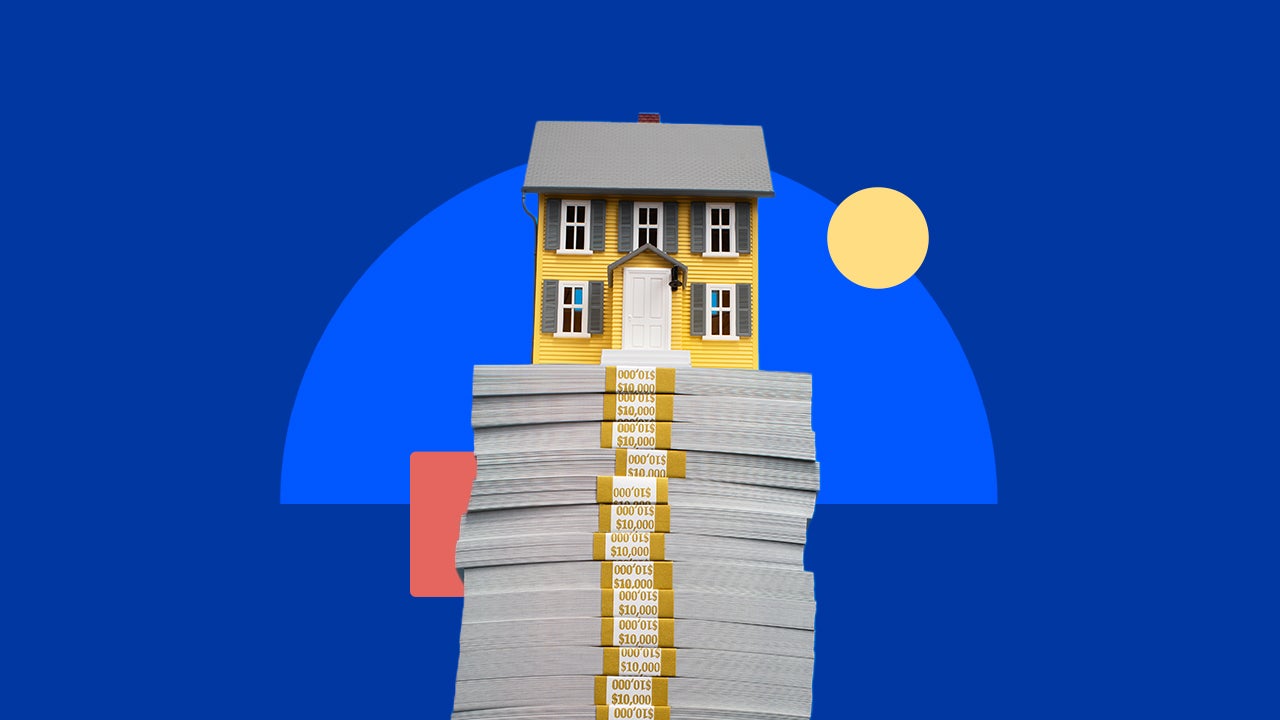Questions to ask a mortgage lender




When you’re applying for a mortgage — especially if you’re a first-time homeowner — you’ll likely have questions for your lender. But what kinds of questions should you ask a loan officer? To help you prepare, here’s a rundown of some of the most common questions to ask a mortgage lender.
Questions to ask a mortgage lender
Before you meet with a loan officer who represents a mortgage lender, it’s smart to come prepared and know what you want to get out of the conversation. You’ll want to cover a variety of topics, including how to qualify and get approved for a mortgage and what to know about your obligations as a borrower. It’s also important to know your house budget beforehand so you don’t assume you can afford what a lender qualifies you for and wind up in financial trouble.
Here’s an overview of what to ask a mortgage lender when you apply for a home loan.
What type of mortgage do you recommend for me?
There are quite a few different types of mortgages, including conventional versus government-backed, fixed-rate versus adjustable-rate and conforming versus non-conforming. Each type has its pros and cons, as well as its own eligibility requirements. Your lender or loan officer can explain which types of loans it offers and which ones might be a good fit based on your situation.
Don’t just ask about the type of mortgage, though. Be sure to ask what kind of repayment terms are offered, too. While 15-year and 30-year terms are the most common for fixed-rate mortgages, some lenders offer the ability to customize your repayment terms for more flexibility.
What is the minimum down payment requirement?
While you might believe that a 20 percent down payment is necessary, the reality is that many mortgages require significantly less.
For example, a qualified applicant can take out a conventional loan with 3 percent down, and a borrower with a credit score of 580 or above can get an FHA loan with as little as 3.5 percent down. In 2024, the median down payment for first-time buyers was nine percent, according to the National Association of Realtors.
When meeting with lenders, ask about the specific down payment requirements for the loan you’re considering. Even if it’s less than you expected, it might still take some time to save up for it.
“Being aware of the down payment needed helps you plan your finances accordingly,” says Jared Maxwell, branch manager and vice president at Embrace Home Loans in East Providence, Rhode Island. “You can set realistic savings goals and prepare for the initial cash investment required to purchase a home.”
Do I qualify for any down payment assistance programs?
Here’s some good news: You may qualify for a down payment assistance program that awards a loan or grant designed to provide you with a portion of the upfront funds necessary for the home purchase.
Many nationwide programs exist, with some operating at the federal level and others offered by individual lenders. Ask the lender if you may be eligible for a program it offers or knows about. There are quite a few programs available at the state level, too. Rather than combing through a mountain of information, a lender can help you easily determine if you’re eligible.
What are your credit requirements?
Your credit score is one of the biggest factors that lenders use when reviewing your mortgage application and determining your interest rate. Generally speaking, the higher your score is, the more likely you are to get approved and secure a better rate.
Each lender and loan type has its own minimum credit score requirements, so it’s important to ask about these criteria when meeting with lenders. If your credit score isn’t high enough for the loan you want, you can take steps to improve it before applying.
Even if your current score meets your lender’s requirements, you might still want to work on improving it so you can get the best rate possible. After all, even a slight rate reduction can translate to substantial savings — often thousands or tens of thousands of dollars — over the lifetime of your loan.
“Being proactive and working to improve your credit score will open doors to better loan terms and can save you money,” says Maxwell.
What is the annual percentage rate?
The annual percentage rate (APR) signifies the yearly cost of your loan, which is different from the interest rate. The APR includes the interest rate and all additional fees, such as origination fees and mortgage points.
When comparing two or more mortgage offers, the APR provides a better understanding of the overall cost compared to just the interest rate, making this an important question to ask a mortgage lender.
What will my monthly payments be?
If you’re comparing rates but aren’t quite ready to submit a mortgage application, consider asking the lender to compute your monthly mortgage payment based on the provided quote. This step can help you understand your homebuying budget.
When you actually apply, you’ll receive a loan estimate outlining these specifics. If anything is unclear, create a list of questions to ask your mortgage loan officer and set up a time to talk.
“Borrowers need to fully comprehend what their payment is and if that can change,” says Suzanne Downs, mortgage broker and president at Palm Beach Mortgage Group, Inc., in West Palm Beach, Florida.
In addition, borrowers should “understand the entirety of payments their home entails, such as mortgage insurance, taxes and homeowner’s insurance,” says Downs. “All of these payments speak to the affordability of the home.”
Do you offer prequalification and preapproval?
Ideal for people preparing to purchase a home, the mortgage prequalification process gives you an idea of what you might qualify for when you apply. Many lenders offer prequalifications without running a hard credit check but confirm this beforehand.
When you are ready to seriously start house-hunting, you’ll need to get preapproved so you can make good-faith offers on homes. While a preapproval isn’t a commitment to lend, it’s a good indication you’ll get the loan you need when the time comes. For a preapproval, you’ll need to hand over financial documentation and undergo a hard credit check.
“Getting prequalified or preapproved is more than just an administrative step — it’s a strategic tool,” says Clint Jordan, a Colorado-based real estate agent and the founder of Mil-Estate Network, a real estate agency made up of veterans and military spouses. “It gives you a clear picture of what you can afford and demonstrates to sellers that you are a serious and prepared buyer. This can be particularly crucial in competitive markets, giving you a distinct advantage when making offers.”
If you have questions to ask a mortgage lender for preapproval, including how the process works and what happens after you’re preapproved, make sure to ask them before you officially apply.
Will you service my loan?
The company that loans you the money to purchase a home may not be the company you pay each month. Mortgages are commonly sold on a secondary market, which helps keep cash flowing so other borrowers can purchase homes. However, it’s smart to ask if the lender you’re considering will keep the loan on its books. If it services its loans, you can proactively look into other customer reviews about their servicing experience.
Do you offer an interest rate lock, and what is the fee?
When you’re just starting out on the house-hunting journey, it’s important to understand that mortgage rates change all the time. Many lenders offer rate locks, which can help protect you from the potential of rates going up before you close the loan. For example, if you start looking at homes with a budget that accounts for a 6.5 percent mortgage rate, you might have trouble adjusting to a loan with a 7 percent rate.
Ask lenders about rate lock options including how long the lock can last and how much you’ll pay if you need to extend the lock with some additional time to get to closing.
Is mortgage insurance required?
For a conventional loan, you’re required to pay private mortgage insurance (PMI) if you put down less than 20 percent. This insurance is an added cost that usually gets added to your monthly payments. On average, PMI costs about 0.46 to 1.5 percent of the loan amount per year, according to the Urban Institute.
“While mortgage insurance does increase your monthly mortgage payment, it also enables you to buy a home with a smaller down payment,” says Maxwell. “This allows first-time buyers to enter the housing market sooner than if they had to save up for a big down payment.”
With an FHA loan, you’ll pay mortgage insurance in the form of two mortgage insurance premiums (MIPs). Additionally, it’s a lot tougher — and, in some cases, impossible — to get rid of mortgage insurance on an FHA loan, while mortgage insurance on a conventional loan can be eliminated once you accumulate 20 percent equity in the home.
Some lenders offer “no-PMI loans,” which eliminate these premiums in exchange for a higher interest rate. For example, Hurst Lending offers no-PMI loans that come with a low down payment requirement. Depending on how long you plan to live in the home, it might or might not make sense to accept the higher rate.
How much are closing costs?
Closing costs include lender and third-party fees, such as for the appraisal and title services. On average, these costs run between 2 and 5 percent of your total loan amount, but they vary by state.
Ask your lender about its origination fee, credit check fee and other costs. You’ll also want to find out which fees and services are legally required in your state. For example, some states require a real estate attorney to supervise closings, which increases the cost of buying a home. And if you’re planning to use down payment assistance, find out if the funds can also be used to cover closing costs.
“Knowing these costs upfront allows you to plan accordingly, ensuring that you’re financially prepared for the final steps in purchasing your home,” says Jordan. “It’s about avoiding surprises and feeling confident as you walk through the door of your new home.”
Are there any penalties for prepaying the mortgage?
With many mortgage lenders, you can pay off your mortgage early without any penalty. However, some lenders charge a prepayment penalty to discourage you from making higher scheduled payments or fully paying off the loan ahead of time. That’s because mortgage lenders and banks stand to gain more revenue when borrowers adhere to a longer loan duration, such as with a 30-year mortgage.
There are soft and hard prepayment penalties. Here’s how they compare:
- Soft prepayment penalties let you sell your house without paying a fee. But if you refinance or pay off your mortgage, you’ll be charged a fee.
- With a hard prepayment penalty policy, you’ll be charged a fee for selling your home, refinancing or paying off your mortgage early.
Ask the lender if they impose either of these penalties for paying off your loan early, and if so, how much it will cost.
How — and how often — will I be updated on the loan’s progress?
It takes a long time to move from applying for a mortgage to getting a formal approval that lets you close on the house. Before you start the process, ask the lender what to expect along the way. Will they send you emails about the progress? What are their customer service hours if you need to speak with someone about a missing document? Will you be able to connect with someone on the weekend if you have an urgent request?
Other questions to consider asking a mortgage lender
- How long will it take to close? While a lender likely won’t give you an exact timeline, they should be able to offer an estimate on how long the process will take. This is important to set expectations with the seller of the property and plan for a realistic closing date.
- Will you need to sign all the documents in person? You’re going to need to put your autograph on loads of documents. Ask your lender if they offer the ability to e-sign (from the comfort of your home).
- Do you charge any fees? Are there any discounts available? Origination fee, underwriting fee, credit report fee and more — lenders charge a wide range of fees for mortgage applicants. Ask every lender how much they charge, and inquire about discounts or lender credits that can help you lower the price.
How to find the best mortgage lender
While it’s wise to start your search with the best mortgage lenders in the country, keep in mind that the best lender for you will depend on your unique needs as a borrower. In addition to looking at the rates, fees and reviews of national mortgage lenders, look around locally. Community banks and credit unions often offer great terms for customers. Ask your friends and family for recommendations, too.
From there, visit the lenders’ websites to review their rates and terms and narrow down your list to at least three options. After that, you can apply for preapproval with each lender so you can compare their offers and better understand how much money they’re willing to lend you.
Why we ask for feedback Your feedback helps us improve our content and services. It takes less than a minute to complete.
Your responses are anonymous and will only be used for improving our website.




